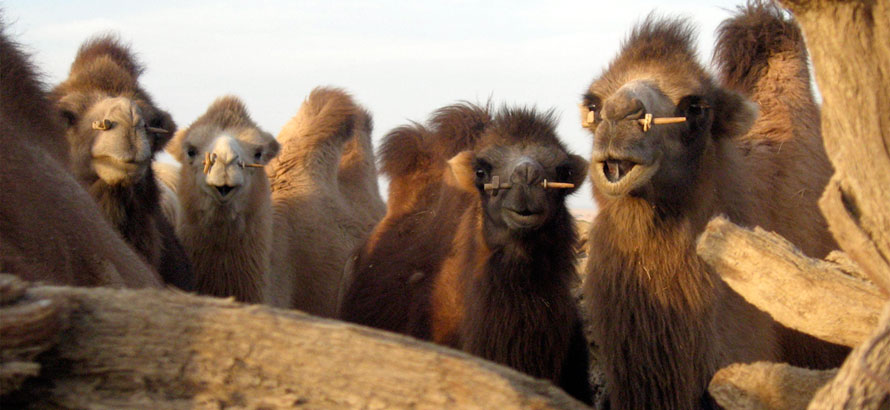 Camels from a farmer's cooperative in Inner Mongolia, Photo by Lynn Huntsinger
Camels from a farmer's cooperative in Inner Mongolia, Photo by Lynn Huntsinger
In fieldwork in the U.S. and China, Professors Lynn Huntsinger and Li Wenjun of Peking University have noted efforts to restore or maintain some aspects of traditional systems in China and the U.S. at multiple scales.
These adaptations may be those needed to retain or develop resilience and sustain livelihoods in the face of unprecedented and rapid change. Often these are grassroots efforts, such as the development of a farmer’s camel marketing cooperative in an Inner Mongolia village, a grazing lands sharing cooperative in Xilingol, or the use of extended family connections to maintain grazing after sedentarization.
In the U.S., grassbanks, community, and NGO-coordinated conservation easement programs, grazing lands sharing systems, extended cooperative marketing networks, and ranching alliances are emerging. In each country there is growing interest in organic and natural foods, including meat from animals raised extensively on rangeland, raising the possibility of direct marketing from the grasslands.
